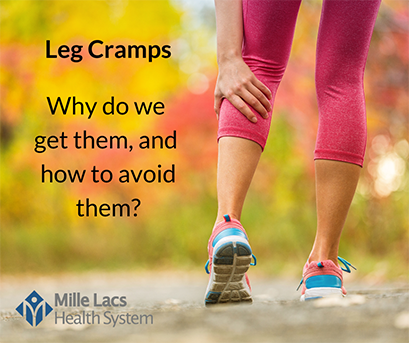Charlie Horses: What Causes Them and How to Prevent Them
October 21, 2024
A “Charlie horse” is a sudden, painful muscle cramp that often occurs in the legs, especially in the calves. These cramps can happen unexpectedly, during sleep, or after physical activity, leaving the affected muscle feeling tight and sore. While Charlie horses are common, they can be quite painful and disrupt daily activities. Understanding what causes them and how to prevent them can provide relief.
Charlie horses, or muscle cramps, occur when muscles involuntarily contract and don’t relax. This sudden tightening can last from a few seconds to several minutes, and the muscle may remain sore after the cramp resolves.
Several factors contribute to muscle cramps:
- Dehydration: When your body lacks enough water, it can affect muscle function and lead to cramping. Dehydration disrupts the balance of electrolytes, such as potassium and sodium, which are essential for normal muscle contraction and relaxation.
- Overuse or Muscle Strain: Engaging in strenuous physical activity or exercising without proper warm-up and stretching can cause cramps. Athletes and those who frequently exercise are more likely to experience muscle spasms due to overworking their muscles.
- Nutrient Deficiencies: A lack of important minerals like potassium, magnesium, and calcium can contribute to muscle cramps. These minerals play a critical role in regulating muscle function, and low levels can lead to cramps.
- Poor Circulation: Inadequate blood flow to muscles, often due to prolonged periods of inactivity, can lead to Charlie horses. This is more common in older adults and people with conditions like diabetes or peripheral artery disease.
- Medications: Some medications, like diuretics for high blood pressure, can cause muscle cramps by disrupting electrolyte balance.
Fortunately, there are several ways to reduce the risk of Charlie horses:
- Stay Hydrated: Drinking enough water throughout the day helps maintain a healthy balance of fluids and electrolytes, reducing the chance of cramps. Sports drinks like Gatorade can also help increase electrolytes.
- Stretch Regularly: Stretching your muscles before and after exercise can help prevent cramps. Focus on your legs and calves if those areas tend to cramp.
- Maintain a Balanced Diet: Eating foods rich in potassium, magnesium, and calcium, such as bananas, leafy greens, and dairy products, helps regulate muscle contractions.
- Wear Proper Footwear: Supportive shoes can help reduce muscle strain and improve circulation, especially for people who stand for long periods.
If you experience a Charlie horse, gently stretch the affected muscle to relieve the cramp. Applying heat with a warm towel or heating pad to relax the muscle or ice to reduce soreness can also help. If the cramp occurs during the night, try walking to increase circulation.
Most muscle cramps are harmless, but if you experience frequent or severe cramps, it’s important to consult with your medical provider to rule out any underlying conditions.
